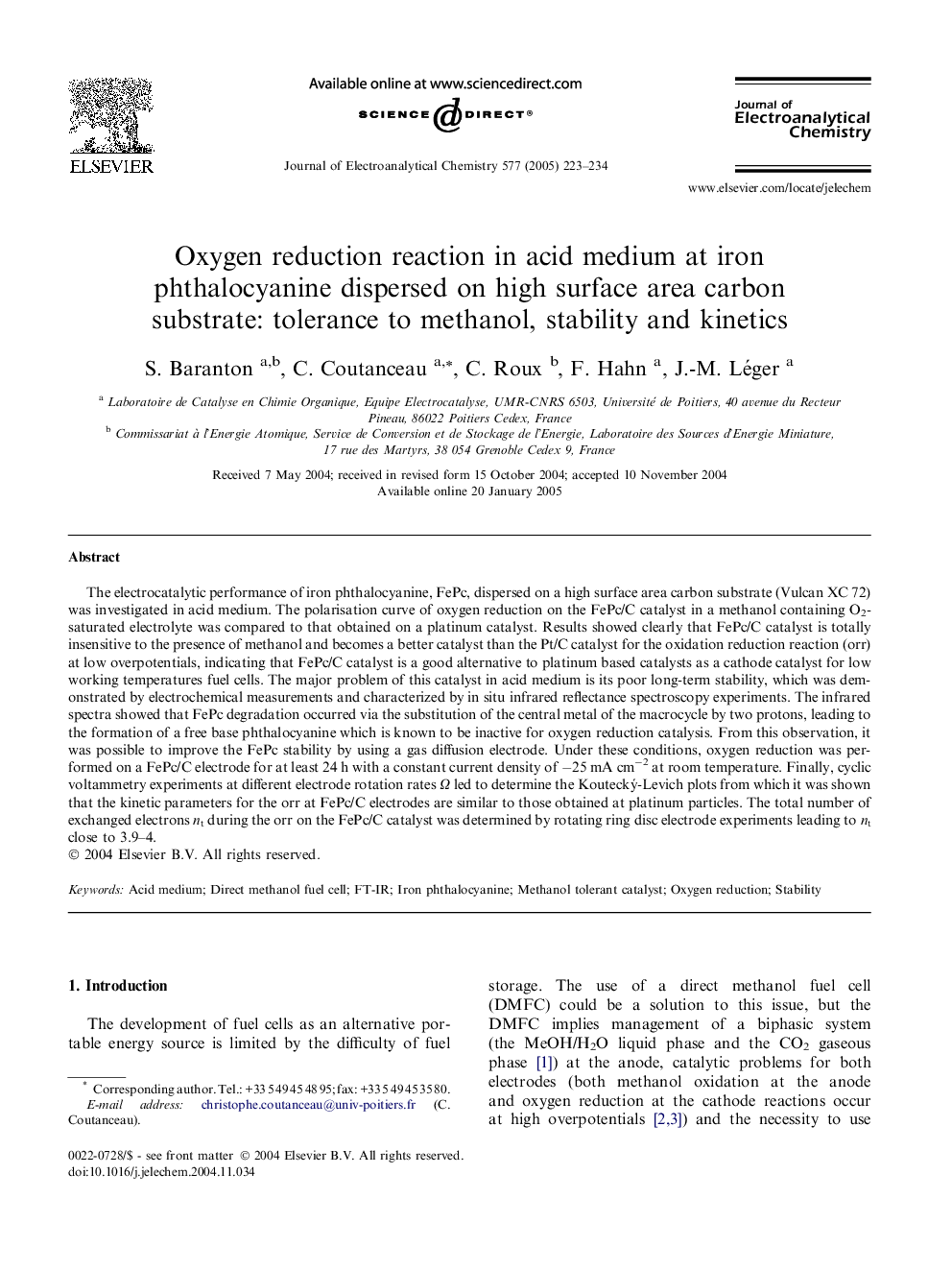| Article ID | Journal | Published Year | Pages | File Type |
|---|---|---|---|---|
| 10276079 | Journal of Electroanalytical Chemistry | 2005 | 12 Pages |
Abstract
The electrocatalytic performance of iron phthalocyanine, FePc, dispersed on a high surface area carbon substrate (Vulcan XC 72) was investigated in acid medium. The polarisation curve of oxygen reduction on the FePc/C catalyst in a methanol containing O2-saturated electrolyte was compared to that obtained on a platinum catalyst. Results showed clearly that FePc/C catalyst is totally insensitive to the presence of methanol and becomes a better catalyst than the Pt/C catalyst for the oxidation reduction reaction (orr) at low overpotentials, indicating that FePc/C catalyst is a good alternative to platinum based catalysts as a cathode catalyst for low working temperatures fuel cells. The major problem of this catalyst in acid medium is its poor long-term stability, which was demonstrated by electrochemical measurements and characterized by in situ infrared reflectance spectroscopy experiments. The infrared spectra showed that FePc degradation occurred via the substitution of the central metal of the macrocycle by two protons, leading to the formation of a free base phthalocyanine which is known to be inactive for oxygen reduction catalysis. From this observation, it was possible to improve the FePc stability by using a gas diffusion electrode. Under these conditions, oxygen reduction was performed on a FePc/C electrode for at least 24 h with a constant current density of â25 mA cmâ2 at room temperature. Finally, cyclic voltammetry experiments at different electrode rotation rates Ω led to determine the Koutecký-Levich plots from which it was shown that the kinetic parameters for the orr at FePc/C electrodes are similar to those obtained at platinum particles. The total number of exchanged electrons nt during the orr on the FePc/C catalyst was determined by rotating ring disc electrode experiments leading to nt close to 3.9-4.
Related Topics
Physical Sciences and Engineering
Chemical Engineering
Chemical Engineering (General)
Authors
S. Baranton, C. Coutanceau, C. Roux, F. Hahn, J.-M. Léger,
